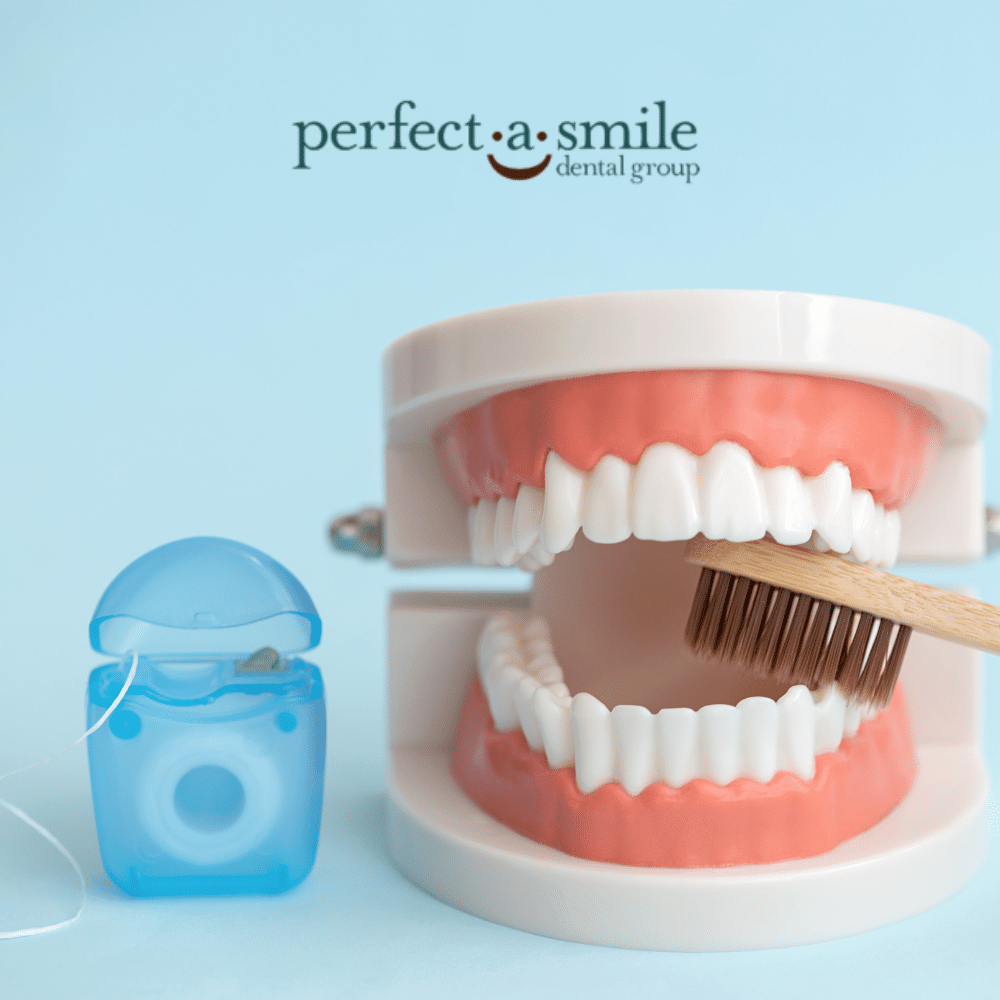
Bad breath, also known as halitosis, is something no one wants to deal with. Whether it’s caused by what you eat, poor oral hygiene, or an underlying health issue, bad breath can be frustrating and even embarrassing. The good news? There are simple steps you can take to prevent and manage bad breath. Our experienced team at Perfect A Smile Dental Group is here to help you determine the cause of your bad breath and create a plan to combat it. In this guide, we’ll break down the causes of bad breath, how to prevent it, and ways to freshen your breath when it strikes.
What Causes Bad Breath?
Understanding the root causes of bad breath is the first step in preventing it. Here are some of the most common culprits:
1. Poor Oral Hygiene
If you don’t brush and floss regularly, food particles can stay in your mouth, leading to dental plaque buildup and bacteria growth. This bacteria produces foul-smelling gases that contribute to bad breath.
2. Dry Mouth (Xerostomia)
Saliva is essential for washing away bacteria and food debris. When your mouth is dry, bacteria multiply, leading to “morning breath” and persistent halitosis. Dry mouth can be caused by:
- Dehydration
- Certain medications
- Mouth breathing
3. Strong-Smelling Foods
Garlic, onions, coffee, and spicy foods can linger in your mouth long after you’ve enjoyed them. As a result, odors are released through your breath.
4. Tobacco Use
Smoking or chewing tobacco contributes to bad breath by drying out your mouth and introducing foul-smelling chemicals. They also increase the risk of gum disease, another cause of halitosis.
5. Gum Disease and Oral Infections
Gum disease (gingivitis or periodontitis) creates pockets of bacteria in the gums, leading to chronic bad breath. Untreated cavities and oral infections can also cause persistent odors.
6. Underlying Medical Conditions
In some cases, bad breath is linked to health conditions such as:
- Sinus infections
- Heartburn or acid reflux (GERD)
- Diabetes
- Kidney or liver disease
If you have persistent bad breath despite good oral hygiene, it’s important to consult a dentist or doctor.
How to Prevent Bad Breath
The best way to combat bad breath is to prevent it before it starts. Here’s how:
1. Brush and Floss Daily
- Brush twice a day with fluoride toothpaste to remove dental plaque and food particles.
- Use dental floss at least once a day to clean between teeth where a toothbrush can’t reach.
- Use a tongue scraper or brush your tongue to eliminate bacteria buildup.
2. Stay Hydrated
- Drink plenty of water throughout the day to keep your mouth moist.
- Chew sugar-free gum or suck on sugar-free mints or candy to stimulate saliva production.
- Avoid excessive caffeine and alcohol, which can contribute to dry mouth.
3. Eat a Balanced Diet
- Limit foods with strong odors, such as garlic, onions, and coffee. When you do consume them, brush or rinse afterwards.
- Eat crunchy fruits and vegetables like apples, carrots, and celery to help clean teeth naturally.
- Incorporate probiotic-rich foods like yogurt to support a healthy balance of bacteria in your mouth.
4. Use Mouthwash and Rinses
- Choose an antibacterial mouthwash to help kill bacteria that cause bad breath.
- Avoid alcohol-based mouthwashes, which can dry out your mouth and worsen halitosis.
5. Quit Smoking and Tobacco Use
- If you smoke or use tobacco, quitting can significantly improve your breath and overall oral health.
6. Schedule Regular Dental Visits
Seeing your dentist every six months for a professional cleaning and checkup can help prevent oral health issues that contribute to bad breath.
How to Manage Bad Breath When It Strikes

Even with the best efforts, bad breath can still happen. If you need a quick fix for bad breath, try these strategies:
- Brush or rinse after meals: This will help remove food particles and odors.
- Keep sugar-free gum or mints handy: Chewing gum masks bad breath and stimulates saliva production to help wash away bacteria.
- Stay hydrated: A dry mouth makes bad breath worse.
- Snack on fruits and vegetables: Crisp fruits and veggies help clean teeth naturally and stimulate saliva.
- Avoid breath-killing habits: A diet high in alcohol, caffeine, and sugary foods encourages bacterial growth.
When to See a Dentist
If you’ve tried everything and bad breath persists, it could be a sign of an underlying health issue. You should see a dentist or doctor if:
- Your bad breath doesn’t improve with good oral hygiene.
- You experience chronic dry mouth, even when drinking plenty of water.
- You have gum disease symptoms, like bleeding gums, swelling, or loose teeth.
- You have chronic sinus infections, acid reflux, or other medical conditions that might be contributing to the issue.
At Perfect A Smile, our team can help determine if gum disease, infections, or other oral health issues are causing your bad breath.
Fresh Breath, Fresh Confidence!
If you’re struggling with persistent bad breath or need help getting your oral health back on track, Perfect A Smile is here to help. Our team can pinpoint the cause and find the best solution for you. Schedule an appointment today! Call us at 440-583-6395 to book your visit. Let’s keep your breath fresh and your smile shining!
